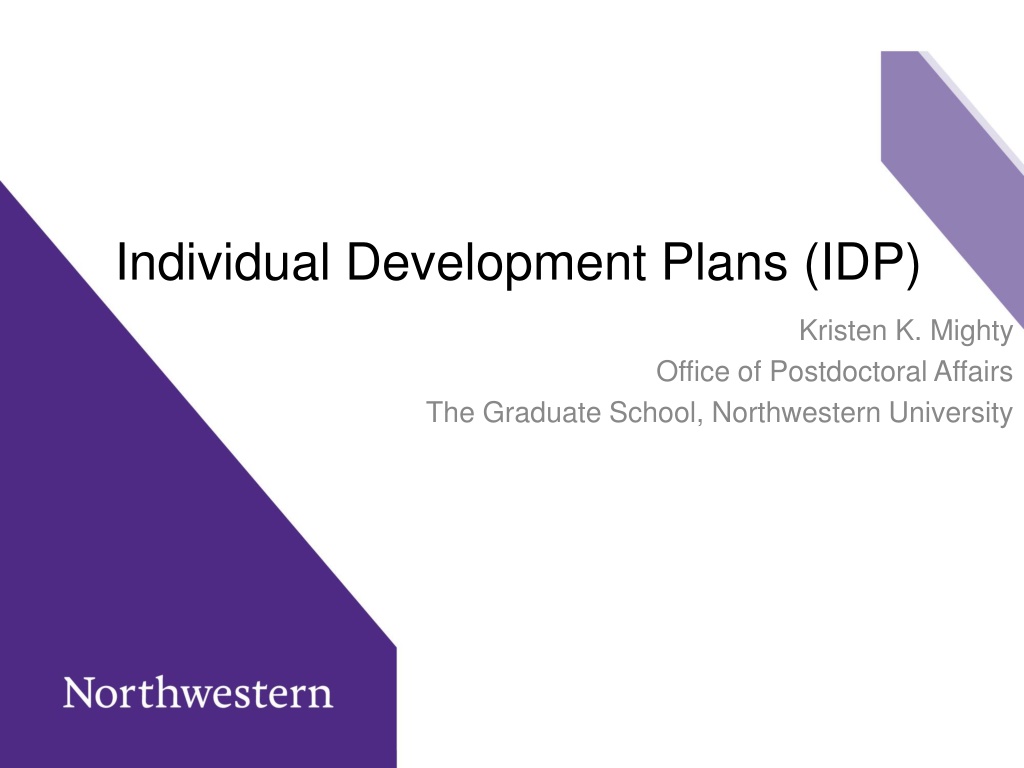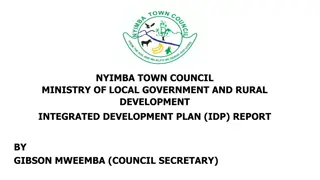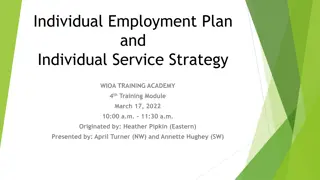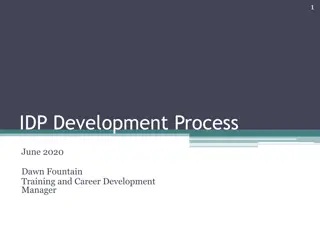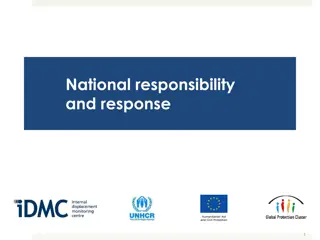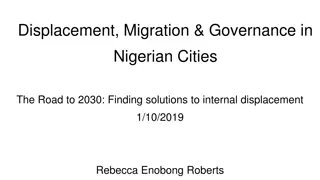Understanding Individual Development Plans (IDPs) for Career Growth
An Individual Development Plan (IDP) is a tool designed to assist in creating a personalized career roadmap based on skills, interests, and values. IDPs facilitate discussions between mentors and mentees, setting expectations and guiding career development through regular assessments. Research shows that structured IDPs lead to increased productivity, higher publication rates, and greater satisfaction among postdocs.
Download Presentation

Please find below an Image/Link to download the presentation.
The content on the website is provided AS IS for your information and personal use only. It may not be sold, licensed, or shared on other websites without obtaining consent from the author. Download presentation by click this link. If you encounter any issues during the download, it is possible that the publisher has removed the file from their server.
E N D
Presentation Transcript
Individual Development Plans (IDP) Kristen K. Mighty Office of Postdoctoral Affairs The Graduate School, Northwestern University
What is an IDP? Tool designed to aid in building a career and professional development roadmap Tailored to mentee s skills, interests, and values. Resource for initiating and sustaining discussions between mentees and mentors. intended to develop mutual expectations of both mentees and mentors Provides structure for regularly occurring (every 6-12 months) career and professional discussions with mentors IT IS NOT meant to be a rigid compact Adapted from: http://myidp.sciencecareers.org/ (Read our privacy policy/legal terms.) Boston University Professional Development and Postdoctoral Affairs Entering Mentoring Curriculum, National Mentoring Research Network 1
IDPs and Career Planning Work for Mentees and Mentors Sigma Xi Survey 22,000 postdocs contacted 7600 postdocs responded More productive than those without a plan Postdocs with a written, structured plan: submitted papers at a 23% higher rate published at a 30% higher rate submitted grants at a 25% higher rate Fewer conflicts with PI More satisfied 2 http://www.sigmaxi.org/docs/default-source/Programs-Documents/Critical-Issues-in-Science/postdoc- survey/highlights
IDP: Discussion Tool & Ongoing Process Driven by Mentee myIDP tool VPhD NPA OPA myIDP tool NPA OPA Assess Skills Explore Careers Desired Skills Develop myIDP tool SMARTS guide TGS, OPA events prof. societies Adapted from: http://myidp.sciencecareers.org/ (Read our privacy policy/legal terms.) Boston University Professional Development and Postdoctoral Affairs Entering Mentoring Curriculum, National Mentoring Research Network 3
IDP: Resources for Mentors 1. SKILLS ASSESSMENT what skills do I currently have? 2. CAREER ASPIRATIONS what career pathways interest me? What do I like to do and what do I value about my work environment? 3. DESIRED SKILLS setting goals for the skills I want. 4. PROFESSIONAL DEVELOPMENT what support can I take advantage of? Adapted from: http://myidp.sciencecareers.org/ (Read our privacy policy/legal terms.) Boston University Professional Development and Postdoctoral Affairs Entering Mentoring Curriculum, National Mentoring Research Network 4
IDP: Tips for Mentors Keep discussions timely & relevant: Start early, re-visit every 6-12 months Coincide with pre-existing big-picture milestones & discussions Maintain flexibility as needed (format/process) while providing accountability for working towards goals Encourage trainee to present IDP to others (co-mentors, peers) Connect trainees to resources throughout the process OPA: http://www.tgs.northwestern.edu/resources- for/postdocs/index.html myIDP: http://myidp.sciencecareers.org/ NPA: http://www.nationalpostdoc.org/ 5
